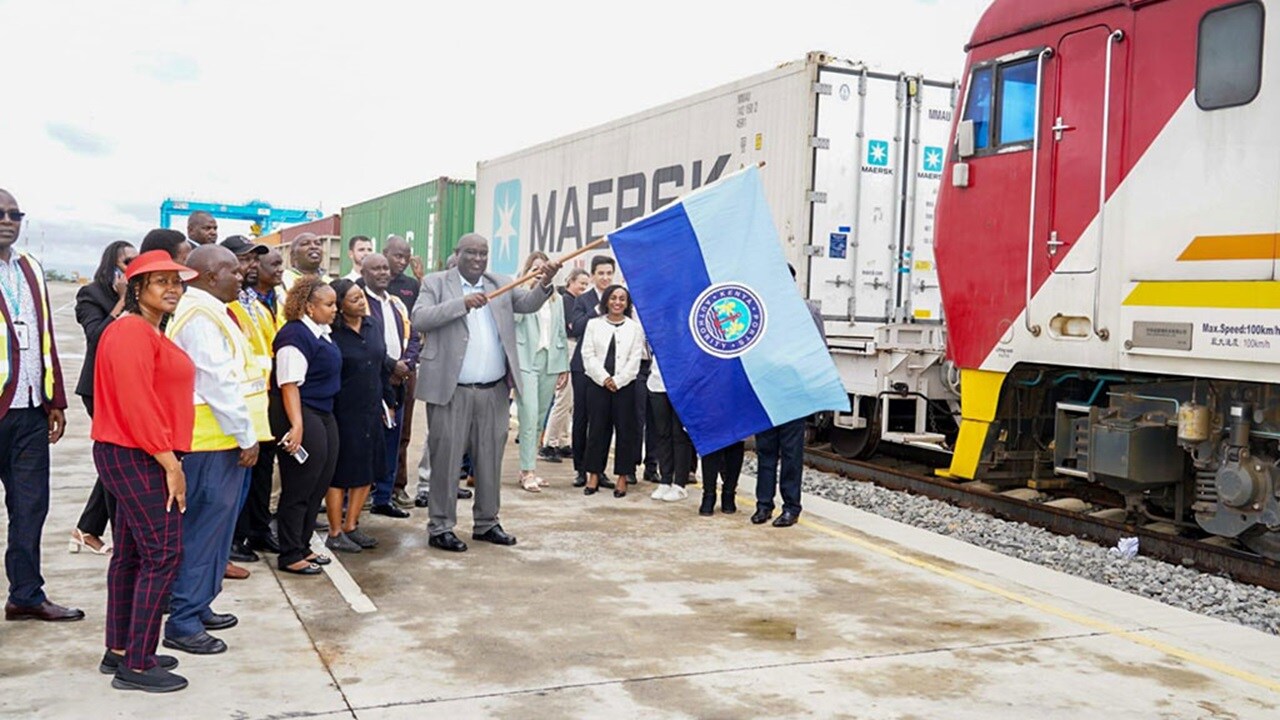Kenya's horticultural sector is a vital component of its economy, contributing to 70% of the country's exports. The majority of these products are destined for The Netherlands, a key trading partner. Traditionally, air freight has been the primary mode of transport for these goods. However, the rising costs associated with decreasing air freight capacity have prompted a shift towards sea freight.
Despite this transition, Kenya faces stiff competition from countries like Colombia, which have established sea shipping routes to Europe for their horticultural products. To enhance Kenya's competitive edge in sea freight, it is therefore crucial to increase trade volumes and reduce costs.
Flowers on rail
The Netherlands has been instrumental in driving this transition through the 'Combi-Track' approach. This public-private collaboration aims to make agrologistics in Kenya more sustainable. The initiative brings together various stakeholders, including farmers, exporters, logistics providers, and policymakers, to develop an efficient cool logistics system.
One promising opportunity for Kenya lies in utilizing the Standard Gauge Rail (SGR) line between Naivasha and Mombasa. Optimizing this rail connection for cooled transport can significantly reduce logistics costs, cut transit times, and lower carbon emissions compared to road transport.
A significant milestone in this effort was the first trial shipment of cut flowers in a cooled container, which took place on 19th March during the state visit by King Willem-Alexander and Queen Maxima of The Netherlands. The royal couple witnessed the shipment of Maersk’s reefer container filled with cut flowers, as part of the trial which aims to develop a proof of concept for transporting refrigerated containers by rail. By gathering insights on success factors and bottlenecks, the goal is to identify key challenges, optimise operations, and ultimately scale up the use of rail and sea freight for Kenya's agricultural and horticultural exports.
The first reefer container with flowers was transported on the Standard Gauge Railway to Mombasa, and then shipped by sea to the Port of Rotterdam, one of Maersk key hubs and Europe’s largest ports. This marks a significant achievement in the collaborative efforts between The Netherlands and its partners to boost and facilitate flower exports from Kenya to its key Dutch customers.

A cultural icon
Flowers play a significant role in The Netherlands, not only as a major export commodity but also as a cultural icon. The country is renowned for its flower fields, particularly tulips, which attract tourists from around the world. The Dutch flower industry dates back to the 16th century when tulips were introduced from the Ottoman Empire. Tulips became a symbol of wealth and prestige during the Dutch Golden Age, and their legacy endures today, with The Netherlands being one of the largest exporters of flowers globally.
Moreover, The Netherlands is a key importer of cut flowers to ensure their availability throughout all seasons and to meet the high demand of the flower-loving nation. The Dutch flower auction system plays a pivotal role in the global floral market, facilitating efficient distribution across Europe and beyond. This importation is crucial for maintaining the country's status as a global floral hub and ensuring that a diverse range of flowers is available to consumers year-round.
Anything you need, we’re here to help
I agree to receive logistics related news and marketing updates by email, phone, messaging services (e.g. WhatsApp) and other digital platforms, including but not limited to social media (e.g., LinkedIn) from A. P. Moller-Maersk and its affiliated companies (see latest company overview). I understand that I can opt out of such Maersk communications at any time by clicking the unsubscribe link. To see how we use your personal data, please read our Privacy Notification.
By completing this form, you confirm that you agree to the use of your personal data by Maersk as described in our Privacy Notification.
